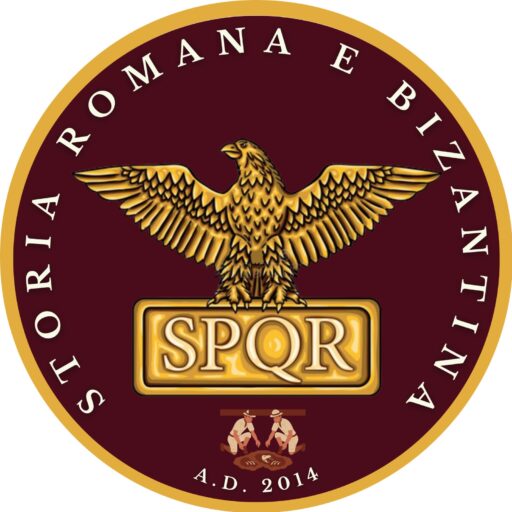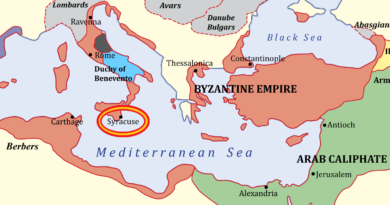The Eastern-Roman conquest of Dastagerd’s royal palace according to Teophanes (628)
 On January 4th AD 628, after the successfull battle of Niniveh, the Eastern Roman emperor Heraclius marched down the Tigris, tooking possession of Dastagerd royal palace, the most important royal residence of the Sasanian king Khosrau II, that devastated and sacked. He was prevented from attacking Ctesiphon, where Khosrau II was barricaded with the rest of his armies, by the destruction of the bridges on the Nahrawan Canal and conducted further raids before withdrawing up the Diyala into north-western Iran.
On January 4th AD 628, after the successfull battle of Niniveh, the Eastern Roman emperor Heraclius marched down the Tigris, tooking possession of Dastagerd royal palace, the most important royal residence of the Sasanian king Khosrau II, that devastated and sacked. He was prevented from attacking Ctesiphon, where Khosrau II was barricaded with the rest of his armies, by the destruction of the bridges on the Nahrawan Canal and conducted further raids before withdrawing up the Diyala into north-western Iran.
Here’s an abstract of Theophanes the Confessor’s Chronicle:
 «Several of the Armenians who accompanied the Persians came to the emperor (at night) and said: ‘Chosroes with his elephants and his own army is encamped five miles on this side of the palace called Dastagerd, in a place called Barasroth, and he has given instructions that his forces should assemble there and fight you. There is a river there that is difficult to cross, and a narrow bridge, and many cramped spaces between buildings, and fetid streams.’ After taking counsel with his officers and his army, the emperor remained in the palace of Beklal. He found therein in one enclosure 300 corn-fed ostriches, and in another about 500 corn-fed gazelles, and in another 100 corn-fed wild asses, and all of these he gave to his soldiers. And they celebrated 1 January there. They also found sheep, pigs, and oxen without number, and the whole army rested contentedly and gave glory to God. They caught the herdsmen of these cattle and were exactly informed by them that Chosroes had learnt on 23 December that the emperor had crossed the bridge of the Tornas and forthwith set out from the palace of Dastagerd (making all speed for Ctesiphon, and all the money he had in the palace he loaded on the elephants, camels, and mules that were in his service, and he wrote to the army of Razates that they should enter that same palace and the houses of the noblemen and take away anything they found therein. So the emperor sent one half of his army to Dastagerd), while he himself went by a different road to another palace called Bebdarch. This, too, they destroyed and burnt, and they thanked God for having wrought such wonders by the intercession of the Theotokos. For who had expected that Chosroes would flee before the Roman emperor from his palace at Dastagerd and go off to Ctesiphon, when, for twenty-four years, he would not suffer to behold Ctesiphon, but had his royal residence at Dastagerd? In his palace of Dastagerd the Roman army found 300 Roman standards which the Persians had captured at different times. They also found the goods that had been left behind, namely a great quantity of aloes and big pieces of aloes wood, each weighing 70 or 80 lbs., much silk and pepper, more linen shirts than one could count, sugar, ginger, and many other goods. Others found silver, silken garments, woolen rugs, and woven carpets – a great quantity of them and very beautiful, but on account of their weight they burnt them all. They also burnt the tents of Chosroes and the porticoes he set up whenever he encamped in a plain, and many of his statues.
«Several of the Armenians who accompanied the Persians came to the emperor (at night) and said: ‘Chosroes with his elephants and his own army is encamped five miles on this side of the palace called Dastagerd, in a place called Barasroth, and he has given instructions that his forces should assemble there and fight you. There is a river there that is difficult to cross, and a narrow bridge, and many cramped spaces between buildings, and fetid streams.’ After taking counsel with his officers and his army, the emperor remained in the palace of Beklal. He found therein in one enclosure 300 corn-fed ostriches, and in another about 500 corn-fed gazelles, and in another 100 corn-fed wild asses, and all of these he gave to his soldiers. And they celebrated 1 January there. They also found sheep, pigs, and oxen without number, and the whole army rested contentedly and gave glory to God. They caught the herdsmen of these cattle and were exactly informed by them that Chosroes had learnt on 23 December that the emperor had crossed the bridge of the Tornas and forthwith set out from the palace of Dastagerd (making all speed for Ctesiphon, and all the money he had in the palace he loaded on the elephants, camels, and mules that were in his service, and he wrote to the army of Razates that they should enter that same palace and the houses of the noblemen and take away anything they found therein. So the emperor sent one half of his army to Dastagerd), while he himself went by a different road to another palace called Bebdarch. This, too, they destroyed and burnt, and they thanked God for having wrought such wonders by the intercession of the Theotokos. For who had expected that Chosroes would flee before the Roman emperor from his palace at Dastagerd and go off to Ctesiphon, when, for twenty-four years, he would not suffer to behold Ctesiphon, but had his royal residence at Dastagerd? In his palace of Dastagerd the Roman army found 300 Roman standards which the Persians had captured at different times. They also found the goods that had been left behind, namely a great quantity of aloes and big pieces of aloes wood, each weighing 70 or 80 lbs., much silk and pepper, more linen shirts than one could count, sugar, ginger, and many other goods. Others found silver, silken garments, woolen rugs, and woven carpets – a great quantity of them and very beautiful, but on account of their weight they burnt them all. They also burnt the tents of Chosroes and the porticoes he set up whenever he encamped in a plain, and many of his statues.  They also found in this palace an infinite number of ostriches, gazelles, wild asses, peacocks, and pheasant, and in the hunting park huge live lions and tigers. Many of the captives from Edessa, Alexandria, and other cities – a great throng of them – sought with the emperor. The emperor celebrated at Dastagerd the feast of the Epiphany; he gladdened and restored his army while he destroyed the palaces of Chosroes.These priceless, wonderful and astonishing structures he demolished to the ground so that Chosroes might learn how great a pain the Romans had suffered when their cities were laid waste and burnt by him.
They also found in this palace an infinite number of ostriches, gazelles, wild asses, peacocks, and pheasant, and in the hunting park huge live lions and tigers. Many of the captives from Edessa, Alexandria, and other cities – a great throng of them – sought with the emperor. The emperor celebrated at Dastagerd the feast of the Epiphany; he gladdened and restored his army while he destroyed the palaces of Chosroes.These priceless, wonderful and astonishing structures he demolished to the ground so that Chosroes might learn how great a pain the Romans had suffered when their cities were laid waste and burnt by him.
Many of the palace diaitarii were also arrested and, on being interrogated as to when Chosroes had departed from Dastagerd, they said: ‘Nine days before your arrival he heard of your presence and secretly made a hole in the city wall near the palace. In this way he went out unhindered through the gardens, he with his wife and children, so there should not be a tumult in the city.’ Indeed, neither his army was aware of it nor his noblemen until he had gone five miles; at which point he announced that they should follow him in the direction of Ctesiphon. And this man who was incapable of travelling five miles in one day, travelled twenty-five in his flight. His wives and children, who previously had not laid eyes on one another, now fled in disorder, one jostling the other. When night had fallen, Chosroes took shelter in the house of an insignificant farmer whose door barely let him through. When, later, Herakleios saw that door, he was amazed.  In three days Chosroes reached Ctesiphon. Twenty-four years earlier, when he besieged Daras in the days of the Roman emperor Phokas, he had been given an oracle by his magicians and astrologers, namely that he would perish at the time he went to Ctesiphon; and although he would not suffer to go one mile in that direction from Dastagerd, he now went to Ctesiphon as he fled. But even there he did not dare stop; nay, he crossed the pontoon bridge over the river Tigris to the town on the other side, which is called Seleukeia by the Romans and Gouedeser by the Persians. He deposited all his money there and remained there with his wife Seirem and three other women who were his daughters. His remaining wives and his many children he sent to a stronghold forty miles to the east.»
In three days Chosroes reached Ctesiphon. Twenty-four years earlier, when he besieged Daras in the days of the Roman emperor Phokas, he had been given an oracle by his magicians and astrologers, namely that he would perish at the time he went to Ctesiphon; and although he would not suffer to go one mile in that direction from Dastagerd, he now went to Ctesiphon as he fled. But even there he did not dare stop; nay, he crossed the pontoon bridge over the river Tigris to the town on the other side, which is called Seleukeia by the Romans and Gouedeser by the Persians. He deposited all his money there and remained there with his wife Seirem and three other women who were his daughters. His remaining wives and his many children he sent to a stronghold forty miles to the east.»
[X]




